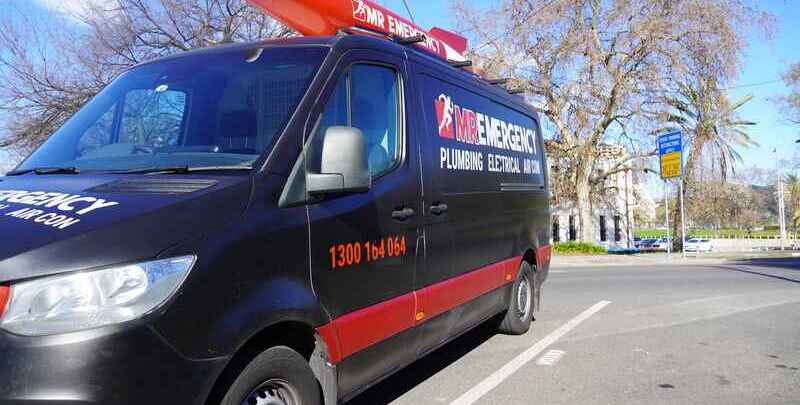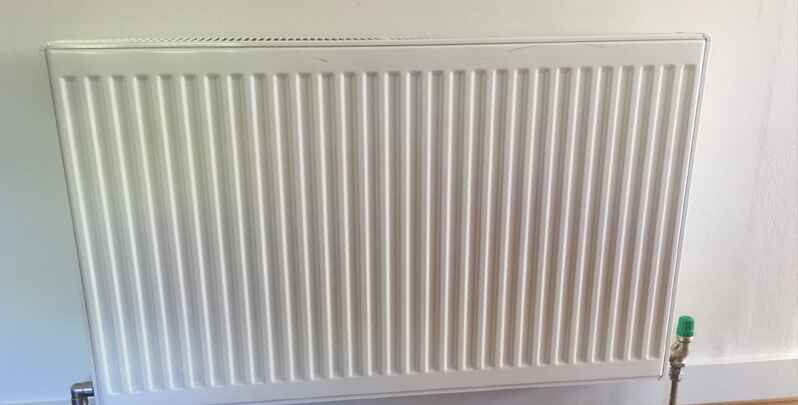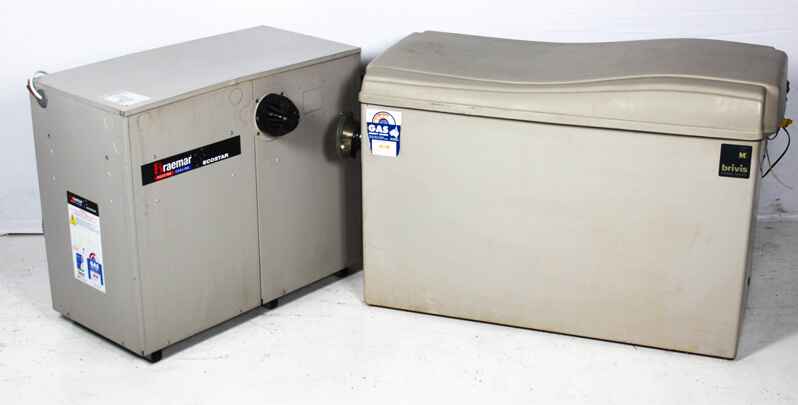
Ducted or Hydronic Heating?
When it comes to keeping your home cosy during the colder months, selecting the right heating system is crucial. The two primary contenders in the heating world are ducted gas heaters and hydronic heating systems.
Ducted heating relies on ducts and vents to distribute warm air throughout your home. In contrast to ducted gas heaters, hydronic heating systems employ hot water or steam circulated through pipes and radiators to create gentle, radiant heat.
In this blog, we’ll delve into the details of both options, outlining their processes, advantages, drawbacks, and, most importantly, helping you make an informed decision on just one system based on your unique requirements.
Ducted Heating
Ducted heating operates through a central heating unit in a basement or utility room. This heating unit first warms the air and then distributes gas heaters to the entire house through a network of ducts.
Vents in various rooms release the heated air, creating a consistent temperature throughout your home.
Advantages of Ducted Heating
Ducted heating excels in larger spaces and lower running costs while efficiently using energy ratings to maintain a uniform temperature.
With the option to implement zoning on central heating systems, you can personalise the heating in your house in different areas according to your preferences. For instance, you can have zone control to keep the bedrooms warmer at night while reducing heat in unused rooms.
Drawbacks of Ducted Heating
Despite its benefits, ducted heating does have some downsides. The installation costs can be higher due to the complexity of the ducted gas heating system.
Additionally, the air distribution can sometimes lead to dryness, particularly for those with respiratory sensitivities.
Moreover, as air travels through different temperatures in the ducts-sealed pipes and heating unit, a certain amount of heat loss can occur, affecting the gas heater and the overall efficiency of other heating systems.

How Does Gas Ducted Heating Work?
The central ducted gas heating and cooling system includes several essential components that combine to bring hot air into the room, warm it and push through the ducting to cool it.
A ductless furnace has heating units, thermostats, insulated conduits, and ventilation systems. Gas ducted heating systems power themselves with natural gas (less frequently used). These systems draw in air, heat it, and force it out through ducts.
They return the warm air through an air grill to the heat exchanger, repeating this process. Central ducted gas heaters are installed on the roof.
What is Hydronic Heating and How Does It Work?
A hydronic heating system operates by heating water or generating steam in a boiler. Circulate the heated fluid through pipes, radiators, or underfloor heating systems. The heat is radiated from these surfaces, creating a comfortable and consistent warmth.
Hydronic heating and cooling systems are increasingly popular for installation at Australian residences and businesses. The Hydronic Heating Institute compiled this comprehensive overview of sustainable and energy-efficient methods being installed for climate control.
Advantages of Hydronic Heating
Hydronic heating boasts less energy consumption and ultimate comfort and efficiency due to the nature of radiant heat.
It doesn’t rely on air circulation but thermal radiation, making it an excellent choice for people with allergies or sensitivities to cold air.
Zoning is also possible, allowing you to customise the temperature of individual rooms. This system provides a gentle heat that feels more natural and comfortable.
Drawbacks of Hydronic Heating
One of the trade-offs with hydronic heating is its slower heating and cooling process compared to ducted gas systems.
The initial installation cost of a hydronic system can be higher than ducted gas heating, primarily due to the need for a boiler and the intricate network of pipes and electricity. Regular maintenance of the boiler and lines is essential to ensure the system’s longevity and efficiency.
Factors to Consider When Choosing a Gas Ducted Heating System
To choose the right gas-ducted heating system for your home, you must consider several essential factors to ensure that you meet your heating needs efficiently and effectively. Here are three key factors to keep in mind:
Size and Capacity:
- Home size and layout: The size and layout of your home are crucial factors in determining the appropriate heating system capacity. A system that is too small will need help to adequately heat your home, while one that is too large may cycle on and off frequently, leading to inefficiency and higher energy bills. Consider the square footage of your home, the number of rooms, ceiling height, insulation quality, and any other factors that may affect the heating load.
- Climate: The climate in your region also plays a role in system sizing. Colder climates require more heating capacity to maintain a comfortable indoor temperature. Choosing a system that can handle the most freezing temperatures in your area is essential.
Energy Efficiency:
- Energy rating: Look for a gas ducted heating system with a high energy efficiency rating. In many countries, heating systems are required to have energy efficiency labels that indicate their performance. A more efficient system will reduce energy bills and have a lower environmental impact.
- Zoning and control: Consider systems that offer zoning options, allowing you to independently control the temperature in different areas of your home. Zoning can help you save energy by only heating the rooms that are in use.
Installation and Maintenance:
- Installation costs: The installation cost can vary significantly depending on the complexity of your home’s layout and the type of system you choose. Obtain multiple quotes from reputable HVAC contractors to compare installation costs.
- Maintenance requirements: Gas ducted heating systems require regular maintenance to operate efficiently and safely. Consider the maintenance requirements of the system you’re interested in, including filter replacement, cleaning, and any other routine tasks. Systems with easy access for maintenance can be more cost-effective in the long run.
- Warranty: Check the security offered by the manufacturer and installer. A more extended warranty can provide peace of mind and save you money on repairs in the future.
- Safety features: Gas heating systems should have safety features like carbon monoxide detectors and proper ventilation to ensure the safety of your household.
Budget and Operating Costs:
- Upfront costs: Consider your budget for both the purchase and installation of the heating system. While finding a system that meets your needs is essential, it should also be within your budget.
- Operating costs: Estimate the ongoing operating costs of the system, including the cost of natural gas. More energy-efficient systems may have slightly higher upfront costs but can save you money in the long run.
- Financing options: Investigate financing options, rebates, and incentives available in your area to help offset the initial costs.
By carefully considering these factors, you can choose a gas-ducted heating system that provides efficient and reliable heating for your home while staying within your budget and minimising environmental impact.
It’s also a good idea to consult a qualified HVAC professional to assess your heating needs and provide personalised recommendations.

Choosing Between Ducted and Hydronic Heating
Colder climates benefit from ducted gas heaters and more from hydronic heating, which offers the efficient heat distribution of hydronic or gas-ducted systems.
Your budget is also crucial; while hydronic systems tend to have higher upfront costs, they might offer long-term savings.
The speed of heating and overall efficiency preferences should align with your lifestyle. Hydronic heating could be more suitable if allergies are a concern due to its lower temperatures and lack of forced air circulation.
Lastly, consider the long-term maintenance requirements and sustainability of each system.
Decision-Making Process
Start by evaluating your climate and home heating and insulation. Determine your budget for both installation and running costs. Assess whether you prioritise quick heating or energy efficiency. Consider any allergies or respiratory concerns.
Reflect on the long-term maintenance commitment you’re willing to make to a gas heater. Once you have a clear picture of your home heating needs and priorities, weigh the pros and cons of each heating system. If you’re unsure, consulting a heating professional can provide.
Which is the Best For You?
Ultimately, the choice between ducted and hydronic heating depends on your unique circumstances and preferences.
Ducted systems efficiently heat larger spaces and save money, while hydronic systems provide comfortable radiant heat. You can make an informed decision by considering climate, roof space, budget, and heating preferences.
Remember, seeking professional advice and services and gathering multiple quotes will help you confidently choose the radiant heating system that turns your house into a warm and welcoming home.
Contact the heating and cooling specialists at Mr Emergency for more information. We’re on call 24/7, every day of the year.
Please note: This information is provided for advice purposes only. Regulations differ from state to state, so please consult your local authorities or an industry professional before proceeding with any work. See our Terms & Conditions here.


